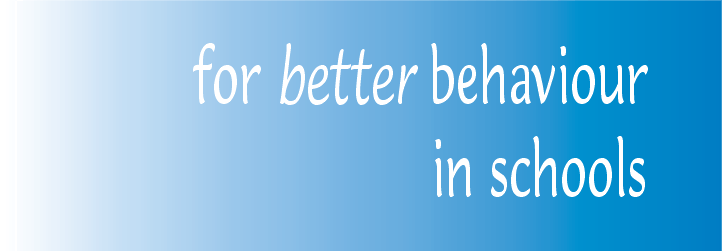

Home | News | Publications | Courses | About | New Outlooks | Framework Document | Checklist | Comment/Ideas | Contact
 |
 |
|
Home | News | Publications | Courses | About | New Outlooks | Framework Document | Checklist | Comment/Ideas | Contact |
|
| Evaluations | |
 |
|
Framework has been
evaluated on a number of occasions since the pilot evaluation in
1997. An independent study was commissioned from Birmingham University in 2000 and two independent evaluations have taken place in Scotland (2004) and Norway (2007) A limited evaluation of the pilot of F4i in 1997 showed significant attitude changes in school staff about their confidence to deal with behaviour issues and their perception of their own responsibility as agents of change- both in the positive direction. Teachers' Unions, who were very skeptical at first, conducted their own research and reported very favourable responses from their members. In 2000 a Birmingham University research report was published based on semi-structured interviews in 6 Framework schools- 4 primary and 2 secondary. The researchers- Ted Cole, John Visser and Harry Daniels concluded that F4i met its own aims in aiding whole-school improvement through responses to behavioural concerns, improving the effectiveness of support services, fostering better behaviour management, atmosphere and ethos in schools. It effectiveness in reducing disruption varied according to the extent that it had been implemented (some of the schools had embraced it fully from the start and others were introducing it slowly). Generally the more they had done the better the results. The 2004 study was carried out in Scotland for the Scottish Executive by Tom Williams, PEP for East Ayrshire in 48 primary, 4 special and 9 secondary schools. The headlines were that 79% of headteachers said that it was a good approach to behaviour in their schools and 75% saying that it fits well with existing strategies. 80% said that it added positively to their behaviour policies with 72% saying that it was a positive approach to disruption. 70% Head Teachers reported that they were no longer seen as the first point of call, 80% felt that the BeCo role was a good opportunity for staff development and 68% said that Framework offered peer support for teachers in their schools. There was concern over the issue of confidentiality of teachers' completed checklists, lack of time and experienced staff going to the Behaviour Coordinator feeling it to be seen as an admission of failure. Tom reported that analysis of recent HMCI (Scottish OfSTED) reports suggested that morale was higher in Framework schools. Framework is recommended by the Scottish Executive and has been adopted by 30 Scottish local authorities. In the Hedmark University College, Norway, evaluation of 2007 the results are notable for being very close to the evaluation in Scotland with similar comments being made. 70% of the expressions of concern eventually led to substantial change in behaviour and of the 11 individual cases examined 9 showed clear progress. Comments included: "We have been helped to structure the knowledge and competence we already had" and "We are more conscious about what is going on, what we do and how it works. Great to learn that it really works to focus on what is positive". Teachers felt more positive about their own ability to solve behaviour problems. There were some significant differences in usage between the schools with one school producing 56 checklists! The way that the project was introduced had a major effect on the attitude of teachers, but the quality of the school based training was valued by most. The results emphasised the importance of selecting the right BeCo. The checklist was thought to be of value in all situations by half the teachers by was highly rated by nearly all for working at school level. Some said that the checklist was too long. Statistical analysis of the checklist showed a high level of inter-observer reliability (in many schools more than one teacher filled in the checklist at the same time). The researchers concluded that this made the checklist a reliable tool to use for self evaluation of schools' learning/behaviour environments. Baselining was carried out in almost all cases and was valued by teachers. There were some frustrations over paperwork where it wasn't fully understood or where teachers felt under time pressure. All teachers emphasised the importance of teacher collaboration. Support from the trainers and headteachers was emphasised. Introduction on a more 'bottom-up' basis was recommended. In summary, the evaluations so far suggest that staff describe positive effects which are correlated with the extent to which the school adopted the Framework. The positive effects are on individual cases and systemic factors. While the research base is positive, there remains a need for comparative research to evaluate Framework against alternative approaches. |
|
|
| Contact the Framework Office for further information |
|
Home | News | Publications | Courses | About | New Outlooks | Framework Document | Checklist | Comment/Ideas | Contact Framework for Intervention is a non-profit making agency of Birmingham City Council's Children, Young Person and Families Department (Children's Services). It is administered within the Educational Psychology Service. (c) Birmingham City Council 1997- |